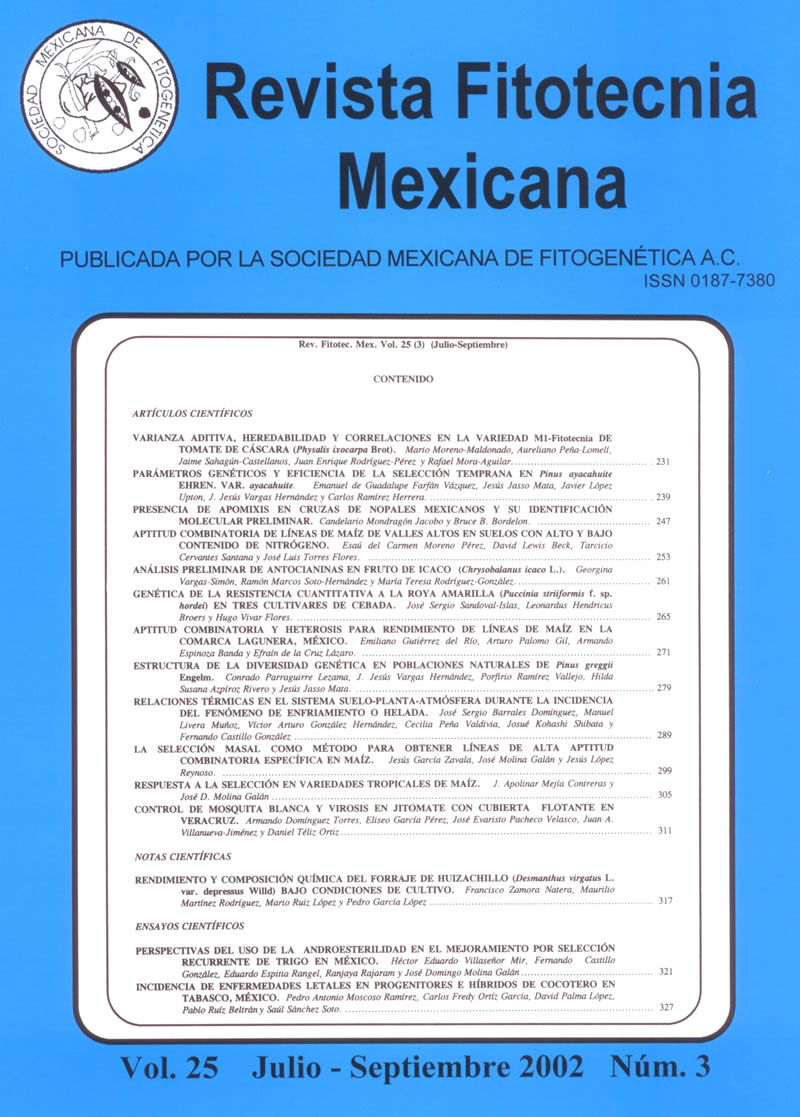CONTROL OF WHITEFLY AND VIRAL DISEASES IN TOMATO WITH FLOATING ROW COVERS IN VERACRUZ
Main Article Content
Abstract
Whitefly (Bemisia tabaci) on tomato (Lycopersicon esculentum) in México causes direct damage and transmission of viral deseases. On protecting tomato plants from this insect, floating covers (polipropilene mesh) can be used. To maximize benefits offered by this technique in Veracruz, México optimal levels of handling on each agroecological condition need to be determined. Field work was carried out from December 1994 to April 1995 in the county of Manlio Fabio Altamirano, Veracruz. Factors evaluated were covering periods of 0 (control), 35, 40 and 45 days after trasplant, as well as two weed control methods (chemical and mechanical). Treatments were established in a randomized blocks factorial arrangement with three replicates. Variables studied were whitefly population density, viral desease incidence, plant height, fruit yield and profit. All covering periods favored plant growth, decreased viral desease incidence, and increased yield compared to the control in both weed control methods, averaging 25.0, 79.6 and 49.0 %, respectively,. Treatments with covering periods of 35 and 40 days, and mechanical weed control had the best net gain ($12 689 and $12 902, respectively) and return rates (54.7 and 55.6 %, respectively).

